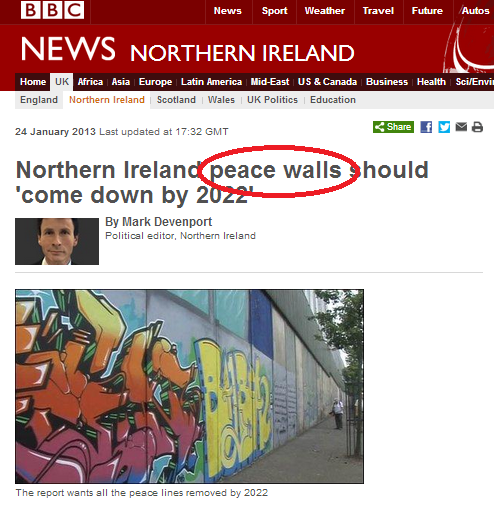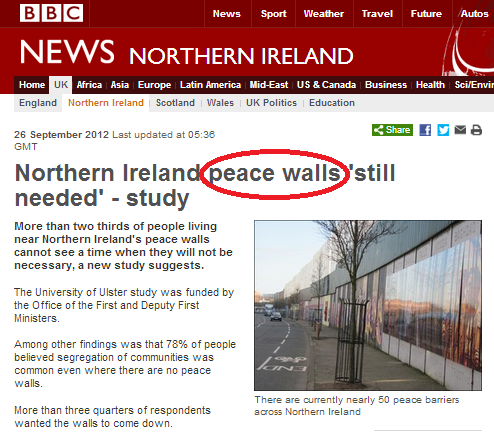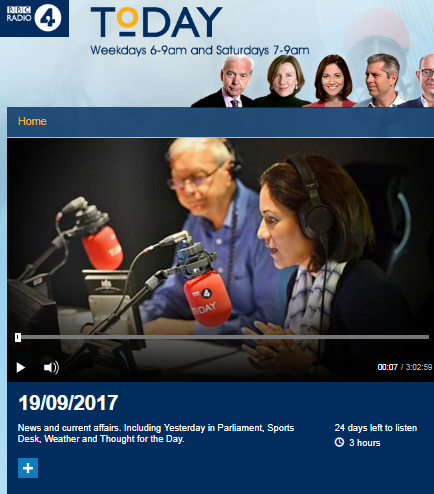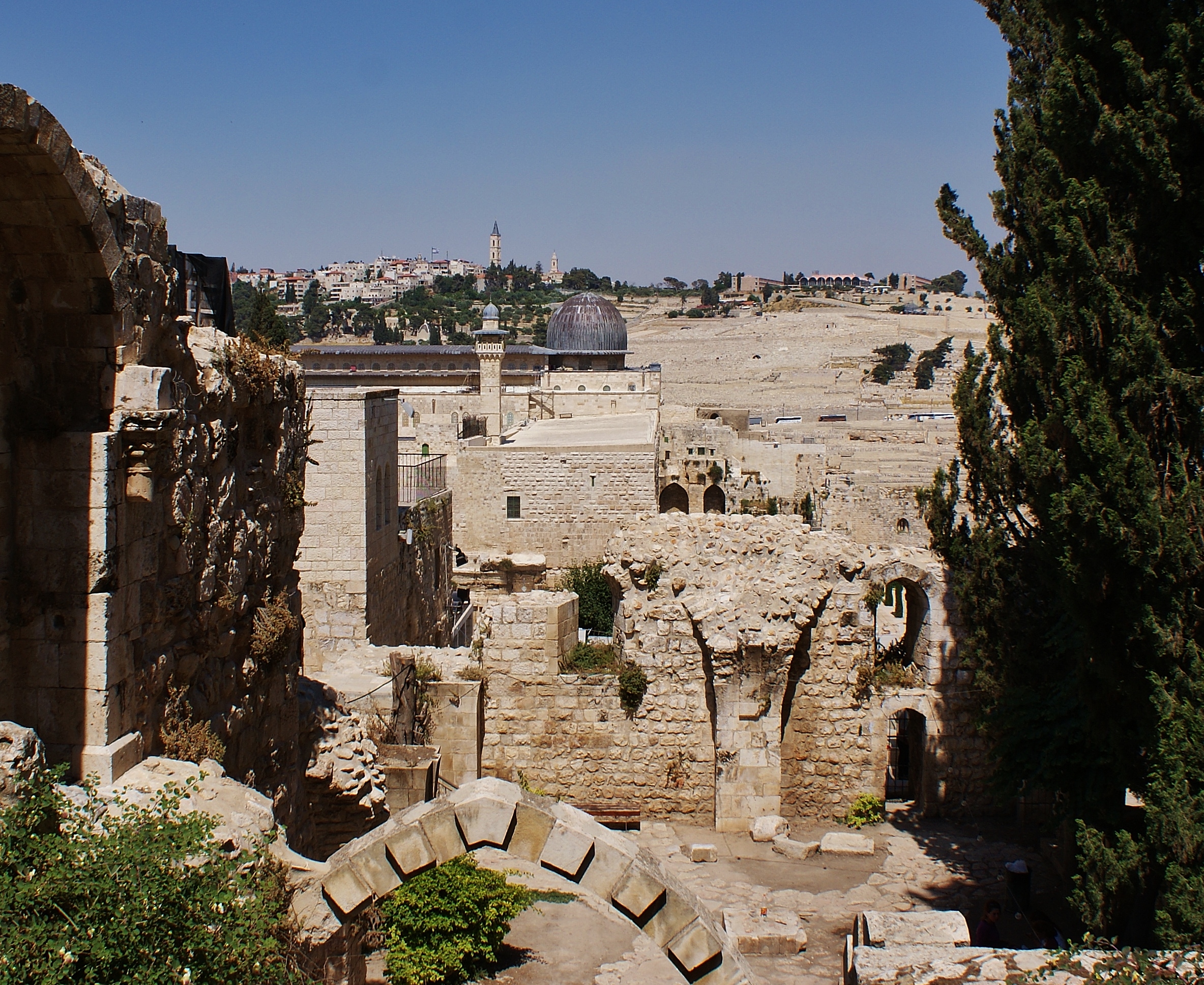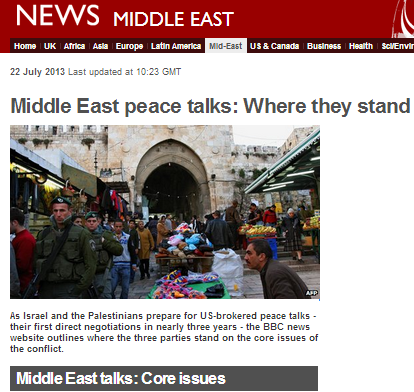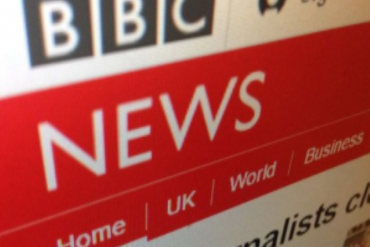A series of Tweets sent by the BBC Jerusalem Bureau’s Wyre Davies on the last day of the Obama visit to Israel provides an opportunity to take a closer look at a specific case of BBC approved terminology.
Davies’ use of the phrase “separation barrier” complies with the BBC’s “Key Terms” – established for use by its journalists covering subjects relating to “the Israeli-Palestinian conflict” in the wake of the Balen Report, but only partially made public in 2006 at the recommendation of the Thomas Report.
The rationale for the use of the term “separation barrier” is described in the “Key Terms” as follows:
“BARRIER
BBC journalists should try to avoid using terminology favoured by one side or another in any dispute.
The BBC uses the terms “barrier”, “separation barrier” or “West Bank barrier” as acceptable generic descriptions to avoid the political connotations of “security fence” (preferred by the Israeli government) or “apartheid wall” (preferred by the Palestinians).
The United Nations also uses the term “barrier”.
Of course, a reporter standing in front of a concrete section of the barrier might choose to say “this wall” or use a more exact description in the light of what he or she is looking at.” [emphasis added]
Obviously, both the avoidance of use of the term “security fence” and the employment in its place of the phrase “separation barrier” have their own political connotations – which apparently escape the BBC.
The BBC’s decision to eschew the term “security fence” means that it consistently and deliberately conceals from its audiences the real reasons for the construction of that fence. Concurrently, its use of the phrase “separation barrier” implies that the fence was built for the purpose of dividing one thing from another and in no way reflects the fact that it actually came into being in order to protect Israeli civilians from Palestinian terror.
Things become even more clumsy when BBC reporters try to add ‘context’ to their use of the phrase “separation barrier”, as this recent example shows:
“The motorcade’s route took Mr Obama through Israel’s controversial West Bank barrier, Israeli security sources said. Israel says the barrier is the only way to defend against militant attacks, but Palestinians view the structure as the prelude to the annexation of occupied land.” [emphasis added]
Here we see that not only is the security fence turned into a “barrier” in accordance with BBC guidelines, but it is also presented as “controversial”. It takes a special kind of perversity to describe a structure which has proven its ability as one of several (and not “the only” as stated above) counter-terrorism methods used to save lives as “controversial”, of course, but it is that same factor which apparently allows the BBC to ignore the hard evidence of the security fence’s efficacy, instead employing the much-used phrase “Israel says” in order to cast doubt upon those facts.
“A comparison of the above data shows a decrease of slightly more than 90% in the number of attacks: from an average of 26 attacks a year before the fence, to three attacks after erection of the anti-terrorist fence. This means a decrease of more than 70% in the number of Israelis murdered: from an average of 103 slain per year before the fence to 28 after erection of the fence. Similarly, this means a drop of more than 85% in the number of wounded: from an average of 688 a year before the fence to 83 wounded per year after it was built. “
Equally perverse are the standard BBC description of suicide bombers and other terrorists as “militants” and the attempt to juxtapose the proven evidence of the security fence’s role in saving lives with the politically motivated fantasy narrative of various Palestinian and anti-Israeli factions as though they were of equal factual value. In this case, the BBC’s boiler-plate attempt at impartiality just makes it look ridiculous.
Interestingly, barriers constructed in order to thwart terrorism on British soil are allotted very different terminology by the BBC.
The BBC’s choice of and adherence to the inaccurate term “separation barrier” completely airbrushes out of the picture the horrific Palestinian terrorism of the Second Intifada. That in turn distorts historic facts and results in diminished audience understanding of the conflict. The fact that the authors of the “Key Terms” (who include Middle East reporting ‘gate-keepers’ Jeremy Bowen and Malcolm Balen) actually state in writing that they consider the title of a structure designed to save human lives to have “political connotations” reveals volumes as regards their own adoption of a specific political narrative and raises severe doubts as to their capability for impartiality.


